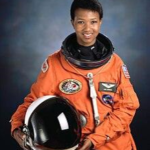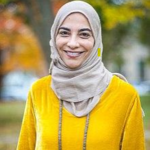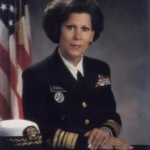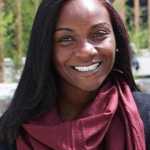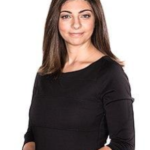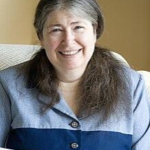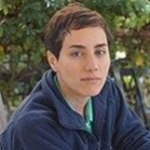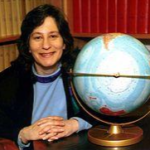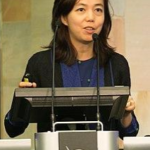Nine inspirational STEM role models for International Women’s Day
by

International Women’s Day (IWD) on the 8th of March is just around the corner. Every year, it provides teachers with a fantastic opportunity to celebrate women’s achievements around the world, raise awareness about the barriers that many women still face, and share inspirational stories to encourage female students to pursue their ambitions.
In particular, the STEM (Science, Technology, Engineering, Mathematics) field holds many promising pathways for women yet is dominated by men. So, this International Women’s Day, why not showcase female role models in STEM, and give all students positive role models to promote women’s inclusion in STEM and beyond.
Here are nine inspirational women in STEM to champion on International Women’s Day 2024.
Mae Jemison
Jemison grew up in Chicago and went to Stanford University at 16 where she studied medicine and was a physician in the Peace Corps. She later successfully applied to NASA’s astronaut training programme, and in 1992 was the first Black woman to travel to space. Jemison orbited the Earth for eight days, carrying out investigations into microgravity in life sciences and materials.
Today, Jemison is the Principal of the 100YS – an initiative to make human travel throughout and beyond the solar system possible within the next 100 years.
Dr Hayat Sindi
Sindi is a biotechnologist and co-founder of Diagnostics For All – a non-profit organisation that creates affordable, accessible diagnostic devices for people in the developing world. Throughout her career, Sindi has supported communities facing barriers to high-quality healthcare. She is the first woman from the Gulf to earn a PhD in biotechnology, and is also one of the first female members of the Consultative Assembly of Saudi Arabia. Sindi is a UNESCO Goodwill Ambassador and is passionate about the progress of women from the Middle East.
Antonia Novello
Novello graduated from the University of Puerto Rico before studying nephrology (the study of kidneys) in the United States. She went on to specialise in public health, organ transplants, paediatric AIDs, and more throughout her career, and was appointed Surgeon General of the US by George Bush in 1990. She was the first woman and person of Hispanic origin to hold the position.
In 1999, Novello was nominated to be commissioner of health for the state of New York. She continues to head the public health agency, which is one of the largest in the US.
Kizzmekia Corbett
Corbett is a viral immunology expert who was part of the team that developed the leading vaccine against Covid. The Phase 3 trials of the vaccine showed an efficacy of 94.1% and it was administered in multiple countries across the globe. She has spent years working on a universal flu vaccine, and has also studied the dengue virus, the respiratory syncytial virus, and more. She currently works as a research fellow and the scientific lead for the Coronavirus Vaccines and Immunopathogenesis Team at the National Institute of Health.
Rana el Kaliouby
El Kaliouby is a scientist, entrepreneur, and leader in Artificial Intelligence. She co-founded Affectiva, a company that uses AI to analyse facial and vocal expressions and understand human emotions, cognitive states, and activities. She is now the Deputy CEO at Smart Eye, building technology that understands, supports and predicts human behaviour in complex environments.
El Kaliouby holds a PhD from Cambridge University, a Post Doctorate from MIT, and has been featured on both Fortune’s 40 Under 40 list and Forbes’ Top 50 Women in Tech. She is the author of Girl Decoded, a memoir about her journey to humanise technology.
Radia Perlman
Perlman studied computer science in the 1960s, developing the algorithm for the Spanning Tree Protocol, which to this day, makes the internet possible. She later invented TRILL to optimise restrictions of the protocol.
Perlman has often been referred to as ‘The Mother of the Internet’, especially considering her work creating an easy-to-use programming language for young children. She has written books on network security and has over 100 patents attributed to her name.
Maryam Mirzakhani
Mirzakhani was the first woman to receive a Fields Medal – the most prestigious award in maths. Her studies in abstract mathematics won her recognition as she took a novel approach to the likes of Teichmüller theory, hyperbolic geometry, ergodic theory, and symplectic geometry. She was a professor at Stanford and several mathematics prizes have been named after her, including the Maryam Mirzakhani New Frontiers Prize and the Maryam Mirzakhani Prize in Mathematics.
Susan Solomon
Solomon is an atmospheric scientist who led an Antarctica expedition to investigate ozone depletion. Her research was crucial in proving that chlorofluorocarbons caused the hole in the ozone. She has since had a glacier in the South Pole named after her, was awarded the 1999 National Medal of Science, and in 2007 was part of the team given the Nobel Peace Prize for their efforts in climate change studies.
Solomon now teaches at MIT, as the Ellen Swallow Richards Professor of Atmospheric Chemistry and Climate Science.
Fei-Fei Li
Li is a China-born, American scientist regarded for establishing ImageNet, the dataset that enabled rapid advances in computer vision. Her research spans cognitively-inspired AI, machine learning, deep learning, computer vision, robotic learning, and more. Li works with policymakers to ensure responsible use of technology, she is a member of the National Academy of Engineering, the National Academy of Medicine, and American Academy of Arts and Sciences. She has additionally written the book “The Worlds I See: Curiosity, Exploration and Discovery at the Dawn of AI“.
Today, Li teaches at the Computer Science Department at Stanford University, and is the Co-Director of Stanford’s Human-Centred AI Institute.
Empower your female students
These are just some of the women who have made important breakthroughs in STEM. Many more women are doing extraordinary work in the field, paving the way for younger women to make their own impact.
Further reading
Curious about other ways to empower women in education and in their careers? Read how to encourage women to pursue STEM careers, how to tackle misogyny in the classroom, and how to achieve gender equality in classroom participation.


